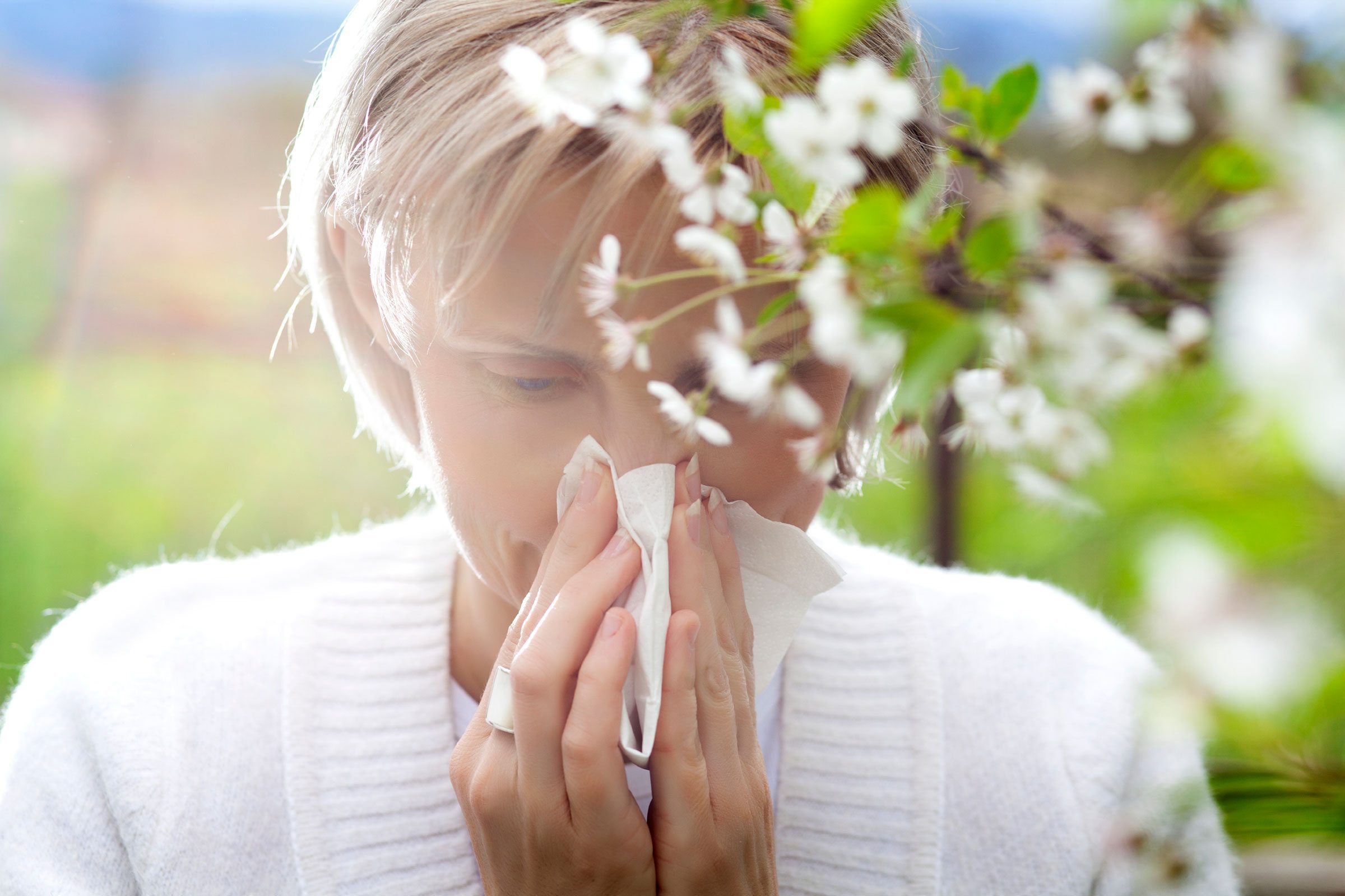Allergy Relief: Natural Solutions for Managing Allergies Effectively

Allergies are a common health issue that affects millions of people worldwide. Whether it’s seasonal allergies, food allergies, or reactions to environmental triggers, the symptoms can range from mild discomfort to severe reactions. Common symptoms include sneezing, itchy eyes, runny nose, skin rashes, and even difficulty breathing in some cases. Many people rely on over-the-counter medications and antihistamines to manage their symptoms, but these solutions often come with side effects and may not address the root cause of the problem.
If you’re seeking natural and effective methods for Allergy Relief, Ayurveda offers a holistic approach that focuses on treating the cause of allergies rather than just masking the symptoms. In this blog, we will explore how Ayurveda can provide Allergy Relief through natural remedies, dietary changes, and lifestyle practices.
Read More: holistic healing embracing the path to complete wellness
Understanding Allergies and Their Causes
Allergies occur when your immune system mistakenly identifies a harmless substance—such as pollen, dust, or certain foods—as harmful. In response, the immune system releases chemicals like histamine that trigger allergic reactions in the body. These reactions can cause inflammation and irritation in the skin, nose, eyes, and respiratory system.
Common allergens include:
- Pollen (from trees, grass, and weeds)
- Dust mites
- Mold spores
- Animal dander
- Certain foods (e.g., peanuts, eggs, milk)
- Insect stings
- Certain medications
While conventional treatments may alleviate allergy symptoms temporarily, they do not always address the underlying causes. This is where Ayurveda, the ancient system of medicine from India, comes in. Ayurveda treats the body as a whole and emphasizes balancing the three doshas (Vata, Pitta, and Kapha) to promote health and prevent disease, including allergies.
How Ayurveda Helps with Allergy Relief
Ayurvedic medicine provides a comprehensive, natural approach to managing allergies. According to Ayurveda, allergies are caused by an imbalance in the Kapha dosha, which governs mucus, water, and stability in the body. When the Kapha dosha is aggravated, it can lead to an accumulation of toxins (known as ama) in the body, which triggers allergic reactions.
Ayurveda focuses on purifying the body, strengthening the immune system, and restoring balance to the doshas to provide Allergy Relief. The primary ways Ayurveda addresses allergies include:
- Herbal Remedies: Ayurvedic herbs help to reduce inflammation, strengthen the immune system, and clear blockages in the body that contribute to allergic reactions.
- Dietary Changes: Ayurveda emphasizes a balanced diet that supports the body’s natural healing processes and reduces the buildup of toxins.
- Lifestyle Practices: Ayurvedic treatments such as yoga, meditation, and detoxification can help manage allergies and reduce their symptoms.
Ayurvedic Remedies for Allergy Relief
Ayurveda offers a wide range of natural remedies for allergies. Here are some of the most effective Ayurvedic herbs and treatments for Allergy Relief:
1. Turmeric (Curcuma longa)
Turmeric is a powerful anti-inflammatory and antioxidant herb commonly used in Ayurveda. The active compound curcumin has been shown to reduce inflammation, promote detoxification, and strengthen the immune system. Turmeric helps alleviate allergic reactions by calming the immune response and reducing mucus production in the body. You can consume turmeric in your food, take it as a supplement, or make a turmeric tea to help manage allergy symptoms.
2. Neem (Azadirachta indica)
Neem is a highly regarded herb in Ayurveda known for its detoxifying, anti-inflammatory, and antimicrobial properties. Neem can help reduce the symptoms of allergic reactions by cleansing the body of toxins and promoting a healthy immune response. Neem is often used in Ayurvedic skin remedies for rashes and itching caused by allergies. You can take neem supplements, drink neem-infused water, or apply neem oil to affected areas for skin irritation relief.
3. Honey and Ginger
Honey has natural antibacterial and anti-inflammatory properties, making it an excellent remedy for Allergy Relief. Raw honey, particularly local honey, is believed to help desensitize the body to pollen by gradually exposing it to small amounts of allergens. When combined with ginger, known for its ability to reduce inflammation and clear respiratory passages, honey and ginger become a powerful remedy for relieving nasal congestion and soothing sore throats caused by allergies.
To use this remedy, mix a tablespoon of raw honey with a small amount of freshly grated ginger and consume it daily. This can help reduce symptoms like sneezing, congestion, and throat irritation.
4. Triphala
Triphala is a well-known Ayurvedic herbal formula made from three fruits: Amla, Haritaki, and Bibhitaki. It is widely used to support digestion, detoxify the body, and strengthen the immune system. As an antioxidant, Triphala helps to clear accumulated toxins (ama) from the body, which is essential for preventing allergic reactions. It also promotes regular bowel movements, which can help eliminate waste and allergens from the body more effectively.
Triphala is available in powder, tablet, and capsule form. It can be taken as a daily supplement to improve overall health and provide Allergy Relief.
5. Brahmi (Bacopa monnieri)
Brahmi is an adaptogenic herb used in Ayurveda to enhance mental clarity, reduce stress, and support the immune system. Stress is a known trigger for allergies, so reducing stress through Brahmi can help prevent allergy flare-ups. Brahmi also helps balance the nervous system, improving the body’s response to allergens. Consuming Brahmi as a supplement or adding it to your diet can help boost overall immunity and prevent allergic reactions.
6. Tulsi (Holy Basil)
Tulsi, or Holy Basil, is another powerful herb in Ayurveda that helps with Allergy Relief. Tulsi has anti-inflammatory, antibacterial, and antiviral properties, making it an excellent remedy for respiratory allergies. It can help relieve symptoms like coughing, congestion, and sinus pressure. Tulsi also boosts immunity and clears the airways, making it easier to breathe during allergy season.
You can consume tulsi tea or chew fresh tulsi leaves to reap its benefits for managing allergies.
Dietary Changes for Allergy Relief
In addition to herbal remedies, Ayurveda emphasizes the importance of diet in managing allergies. According to Ayurveda, an improper diet can lead to the accumulation of toxins (ama) in the body, which aggravates allergies. Here are some dietary guidelines that can help alleviate allergy symptoms:
- Avoid cold and heavy foods: Cold and oily foods, such as ice cream and fried foods, can increase the Kapha dosha and worsen allergy symptoms. Instead, opt for warm, easily digestible foods like soups, stews, and cooked vegetables.
- Eat anti-inflammatory foods: Include foods that reduce inflammation, such as turmeric, ginger, garlic, and leafy greens. These foods help to clear mucus from the body and reduce allergy symptoms.
- Stay hydrated: Drinking plenty of water is essential for flushing out toxins and keeping the respiratory system clear. Herbal teas made from ginger, turmeric, and tulsi can also help with Allergy Relief.
- Limit dairy products: Dairy can increase mucus production, making it more difficult for the body to eliminate allergens. Try to reduce or eliminate dairy products during allergy season.
Lifestyle Practices for Allergy Relief
In addition to herbs and diet, Ayurveda emphasizes the importance of a balanced lifestyle for managing allergies. Practices like yoga, meditation, and proper sleep can help reduce stress, balance the doshas, and improve immune function.
- Yoga: Certain yoga poses, such as Pranayama (breathing exercises), can help clear nasal passages and improve lung function, making it easier to breathe during allergy season. Yoga also helps reduce stress, which is a common trigger for allergic reactions.
- Meditation: Meditation helps calm the mind and reduce the body’s stress response. Stress can weaken the immune system, making the body more susceptible to allergic reactions. Regular meditation helps improve overall well-being and can be a useful tool in managing allergies.
- Detoxification: Ayurveda recommends regular detoxification to eliminate toxins from the body. Methods such as Panchakarma (an Ayurvedic detoxification process) can help cleanse the body and strengthen the immune system, reducing the likelihood of allergic reactions.
Conclusion
If you are seeking Allergy Relief, Ayurveda provides a natural and holistic solution that addresses the root cause of allergies rather than just masking the symptoms. With its emphasis on herbal remedies, diet, and lifestyle changes, Ayurveda offers an effective and sustainable way to manage allergies and improve overall health. By incorporating Ayurvedic practices into your routine, you can strengthen your immune system, reduce inflammation, and enjoy long-lasting allergy relief.

Add comment